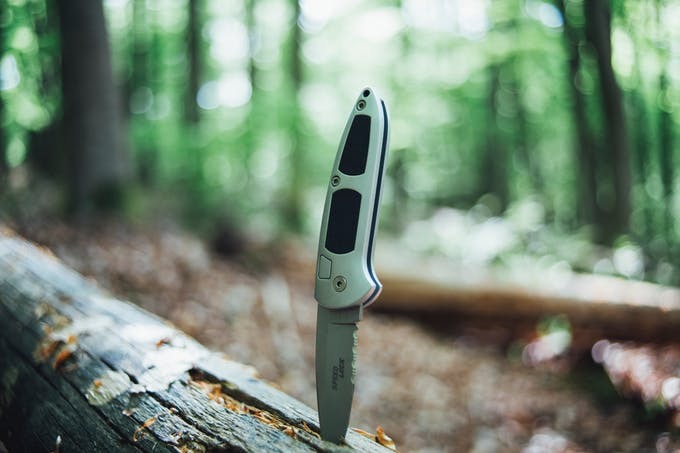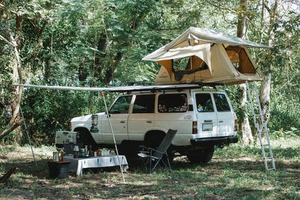Camping Knives & Tools
Posted By Foundry Outdoors
Body
When camping in the woods, a knife helps trim trees and cut food before cooking, but their use will decide the camping knives' size.


For many people, it is not unusual to use their knives for a variety of tasks, which makes their choice vital, so they do not have to carry a different cutter for different purposes.
Knives with serrations may be ideal for cutting tender objects, such as a loaf of bread, but probably will not work if it has to trim small branches for a tree to use for roasting hot dogs over an open fire.
In some instances, camping knives may be called upon to fillet fish, and using a serrated edge may make this job more challenging. While most view camping knives as a long, fixed-blade tool to carry in a sheath, others prefer folding blades to make them more accessible and safer to carry.
An evergreen favorite is the Swiss Army knife (above), full of valuable extras. An extension of that idea is the 12 in 1 multi-function pocket tool, which includes pliers, wire cutter, hammer, hatchet (ax), fish scaler and hook remover, Phillips screwdriver, knife, can opener, hex wrench, saw, file, slotted screwdriver and folds to a convenient 7 1/2″ x 4″ x 1″ with a nylon belt pouch.
There are, of course, purpose-built tools such as a hatchet and the good old folding shovel. Saws can also be a valuable addition to the camping kit, including the commando wire saw, which wraps up to be carried in the little places.
If you are camping on established camping grounds, then the requirement for tools may not be that important, whereas, should you be going into the wild, you need to be as prepared as possible.
In this situation, you may want to consider one of the survival knives that come equipped with useful accessories like a compass, fishing line, and hooks, signaling equipment, etc.
Another specialist area for tools is for the hunter. Many purpose-built hunting kits are containing different knives such as skinning, boning, saws, and axes.
Do Not Carry Unprotected Knives
It may seem elementary, but camping knives should be carried either in a protective sheath or be able to have the blade fold into the handle. This is only common sense, but many accidents occur every year from people being cut or stabbed while carrying an open-bladed knife in their backpack or pocket.
The sheath should also be sturdy enough so that the camping knives' blade does not accidentally cut through the side.
How the sheath is positioned on the belt is also safety-related. It should be far enough to one side to not interfere with the wearer's ability to stoop or bend, yet close enough to the front to allow easy access.
Care is also needed to make sure the sheath housing the camping knives does not end up poking in the pocket or getting hung up on passing brush.
Those choosing to carry folding camping knives are advised to ensure it is a lock-back knife to prevent the blade from slipping closed while being used. The lock-back feature requires the use of two hands to seal the edge and eliminates the accidental closing when the fingers may not be out of the way.
Regardless of the use of camping knives, they need to be kept clean and sharp at all times. Even if they are not used for cutting food, if they are allowed to dry with sap from a tree branch on the blade, even stainless steel blades will suffer and become weak. The edge should never be held over an open fire to clean it, as the heat from the flame can cause the blade to lose its strength and snap off under normal circumstances.
Last but not least is not to forget to take a good knife and tool sharpener to keep everything working at its peak.












Comments